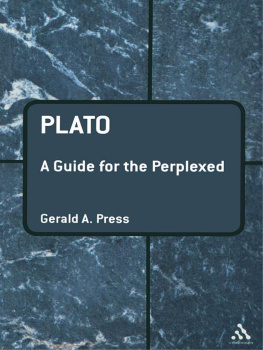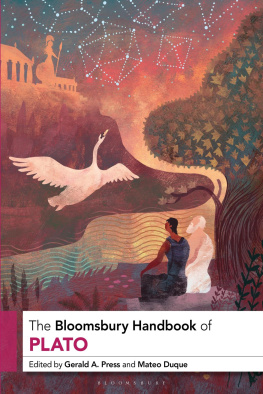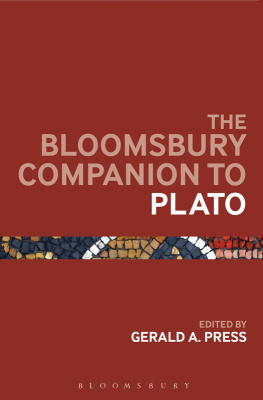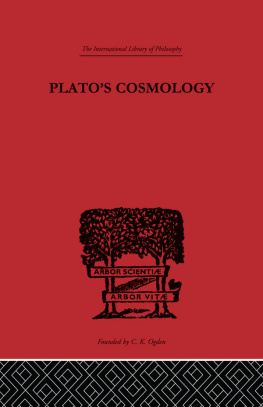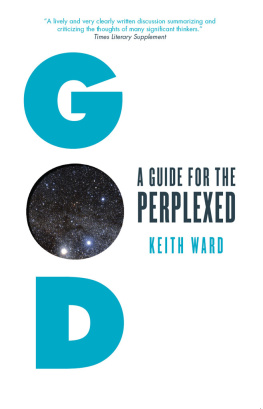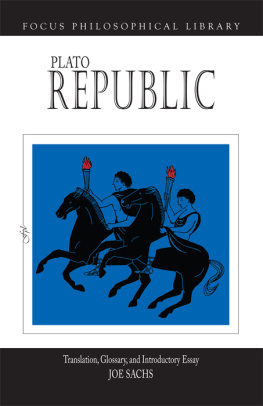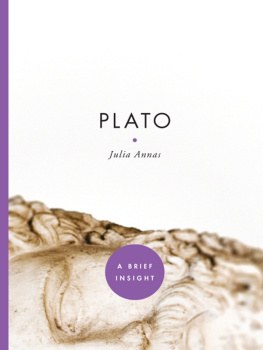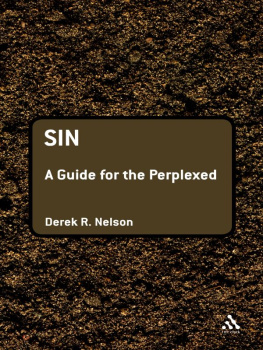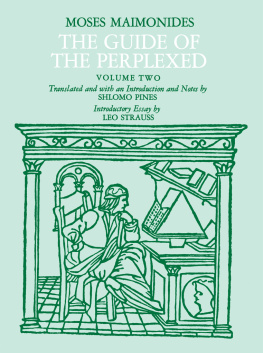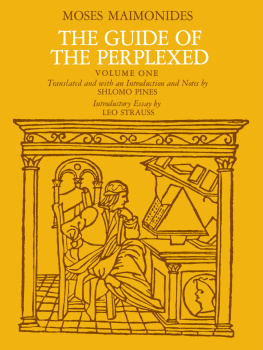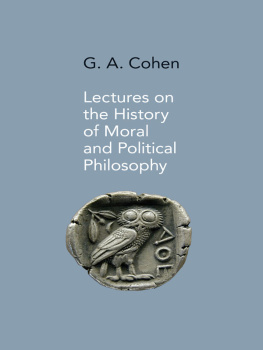Gerald A. Press - Plato: A Guide for the Perplexed
Here you can read online Gerald A. Press - Plato: A Guide for the Perplexed full text of the book (entire story) in english for free. Download pdf and epub, get meaning, cover and reviews about this ebook. year: 2019, publisher: Bloomsbury, genre: Religion. Description of the work, (preface) as well as reviews are available. Best literature library LitArk.com created for fans of good reading and offers a wide selection of genres:
Romance novel
Science fiction
Adventure
Detective
Science
History
Home and family
Prose
Art
Politics
Computer
Non-fiction
Religion
Business
Children
Humor
Choose a favorite category and find really read worthwhile books. Enjoy immersion in the world of imagination, feel the emotions of the characters or learn something new for yourself, make an fascinating discovery.
- Book:Plato: A Guide for the Perplexed
- Author:
- Publisher:Bloomsbury
- Genre:
- Year:2019
- Rating:4 / 5
- Favourites:Add to favourites
- Your mark:
- 80
- 1
- 2
- 3
- 4
- 5
Plato: A Guide for the Perplexed: summary, description and annotation
We offer to read an annotation, description, summary or preface (depends on what the author of the book "Plato: A Guide for the Perplexed" wrote himself). If you haven't found the necessary information about the book — write in the comments, we will try to find it.
Plato: A Guide for the Perplexed — read online for free the complete book (whole text) full work
Below is the text of the book, divided by pages. System saving the place of the last page read, allows you to conveniently read the book "Plato: A Guide for the Perplexed" online for free, without having to search again every time where you left off. Put a bookmark, and you can go to the page where you finished reading at any time.
Font size:
Interval:
Bookmark:
PLATO:A GUIDE FOR
THE PERPLEXED
Adorno: A Guide for the Perplexed, Alex Thomson
Deleuze: A Guide for the Perplexed, Claire Colebrook
Existentialism: A Guide for the Perplexed, Stephen Earnshaw
Derrida: A Guide for the Perplexed, Claire Colebrook
Gadamer: A Guide for the Perplexed, Chris Lawn
Hegel: A Guide for the Perplexed, David James
Hobbes: A Guide for the Perplexed, Stephen J. Finn
Hume: A Guide for the Perplexed, Angela Coventry
Husserl: A Guide for the Perplexed, Matheson Russell
Kant: A Guide for the Perplexed, TK Seung
Kierkegaard: A Guide for the Perplexed, Clare Carlisle
Leibniz: A Guide for the Perplexed, Franklin Perkins
Levinas: A Guide for the Perplexed, B. C. Hutchens
Marx: A Guide for the Perplexed, Martin McIvor
MerleauPonty: A Guide for the Perplexed, Eric Matthews
Nietzsche: A Guide for the Perplexed, R. Kevin Hill
Quine: A Guide for the Perplexed, Gary Kemp
Ricoeur: A Guide for the Perplexed, David Pellauer
Rousseau: A Guide for the Perplexed, Matthew Simpson
Sartre: A Guide for the Perplexed, Gary Cox
Spinoza: A Guide for the Perplexed, Charles Jarrett
Wittgenstein: A Guide for the Perplexed, Mark Addis
PLATO:A GUIDE FOR
THE PERPLEXED
GERALD A. PRESS

Continuum International Publishing Group
The Tower Building | 80 Maiden Lane |
11 York Road | Suite 704 |
London SE1 7NX | New York NY10038 |
www.continuumbooks.corn
Copyright Gerald A. Press 2007
First published 2007
Reprinted 2009, 2010
All rights reserved. No part of this publication may be reproduced or
transmitted in any form or by any means, electronic or mechanical,
including photocopying, recording or any information storage or retrieval
system, without prior permission from the publishers.
British Library CataloguinginPublication Data
A catalogue record for this book is available from the British Library.
ISBN: HB: 9780826491770
PB: 9780826491763
Library of Congress CataloginginPublication Data
A catalogue record for this book is available from the Library of Congress.
ACKNOWLEDGEMENTS
This book offers, in summary form, a way of reading and understanding Platos dialogues that has been slowly growing in the shadow of older and rather different orientations for nearly a century. Its foundations are a few simple principles that I have thought were true since before I knew their names: contextualism (interpreting texts within their original linguistic, historical and intellectual contexts), holism (interpreting texts in their entireties rather than piecemeal), and organicism (treating passages and details of texts as parts of wholes organized by their authors in just this way). The chapters that follow synthesize not only my own work, but also, more importantly, work done by many scholars over many years. I wish to acknowledge them briefly here because the book is primarily intended for nonspecialist readers for whom extensive footnotes and bibliographies are confusing rather than clarifying.
From my own teachers Jason Saunders, Richard Popkin, Herbert Marcuse and Paul Henry, S.J. and the teachers of my teachers Paul Oskar Kristeller, John Herman Randall, Jr and Frederick J. E. Woodbridge I learned close attention to the texts in their original languages as well as sensitivity to textual types and nuances. I also learned from them the necessity of scholarship and the grounding of interpretation in historical context, the significance of drama in Plato, and the importance of challenging inherited modes of interpretation. I have also learned a great deal from scholars of places and times further removed from my own experience: Paul Shorey, Paul Friedlnder, Luigi Stefanini, E. N. Tigerstedt, Ren Schaerer, Antonio Capizzi, Richard McKeon, Harold Cherniss and Jacob Klein. I have learned, too, from scholars of my generation whom I have not known Rudolf Weingartner, Kenneth Sayre, Herman Sinaiko and Michael Stokes and from those I have been fortunate to meet or to know Robert S. Brumbaugh, Rosamond Kent Sprague, H. S. Thayer, Victorino Tejera, James Arieti, Francisco Gonzalez, Hayden Ausland, Thomas Schmid, Samuel Scolnicov, Mitchell Miller, Lloyd Gerson, Debra. Nails, Ruby Blondell, Christopher Rowe, Harold Tarrant and Thomas Alexander Szlezk
Above all, over 40 years, from reading his publications and from personal interactions at conferences, by letter, and by email, and despite the points on which I remain in disagreement with him, I have learned from Holger Thesleff, to whom I dedicate this as he would say protreptic. His universality of scholarship, depth of textual knowledge, openness to new approaches, and flexibility in bringing a variety of approaches and points of view to bear on particular issues are ideals of humane learning and the opposite of the sycophancy, ideology and demagoguery that plague our times.
March 2007
Plato is one of the greatest and most influential of all Western philosophers, but reading Plato is a puzzling experience for many beginning readers. His dialogues seem much more approachable, more readerfriendly than the treatises, essays, disquisitions and meditations written by some of the other classic philosophers. For one thing, they read like stories; and the stories and characters are often interesting and entertaining even though the dialogues include a good deal of argumentation that can be fairly complex. For another, Platos language is rich, often beautiful, and uses a wealth of literary devices that elicit, maintain, restore and reward the readers interest in ways paralleled by only a few of the great Western philosophers. Kierkegaard and Nietzsche are the bestknown and most recent examples of highly literary philosophers and, as with Kierkegaard and Nietzsche each of whom had a special relation to Plato it is very difficult for the beginner to figure out what the philosophy is exactly. It may be even difficult to recognize what teachers or books say the philosophy is, or the reader may find that the philosophy they say is there, while recognizable, seems wrong, offensive or unnecessarily complex.
An overall cause of reader perplexity about Plato is the contrast between what appears on the surface and what seems to exist, but obscurely, beneath the surface. The dialogues are characterized by many interesting details that change both within each dialogue and from one dialogue to another: dramatis personae, framing, setting, tone and subject. Behind or beneath these superficial differences, however, but difficult to articulate clearly, there seems to be a stable set of views about what is true and what is important, about what is the right kind of life and how to live it. The readers experience accurately reflects what the dialogues are really like. As literature the dialogues are infinitely various and inventive while, at the same time, they express some philosophical views that do not seem to change. One of those unchanging philosophical views is that while the world of sensation is always changing, there is another world, the world of thought, which does not change. The structure of the dialogues thus replicates the structure of reality, as Plato seems to see it. This book will attempt to guide the perplexed reader of Plato in part by replicating, in its own structure, these different aspects of Platos thought as articulated in the dialogues. The early chapters treat aspects of the dialogues that exhibit variety and change, aspects that elicit our interest through sensation and imagination, while the later chapters will treat the unchanging vision, principles and ideas that elicit our assent through reason.
Next pageFont size:
Interval:
Bookmark:
Similar books «Plato: A Guide for the Perplexed»
Look at similar books to Plato: A Guide for the Perplexed. We have selected literature similar in name and meaning in the hope of providing readers with more options to find new, interesting, not yet read works.
Discussion, reviews of the book Plato: A Guide for the Perplexed and just readers' own opinions. Leave your comments, write what you think about the work, its meaning or the main characters. Specify what exactly you liked and what you didn't like, and why you think so.

